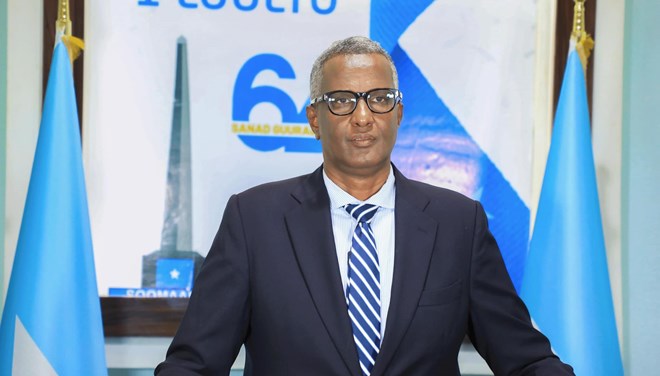Copyright philenews

The Attorney General has left open the possibility of developments regarding the €67 million the European Commission is demanding from the Republic of Cyprus over the Vasilikos terminal, whilst expressing readiness for the Law Office to become involved in investigations if offences fall outside the European Public Prosecutor’s Office remit. George Savvides, speaking to the House Finance Committee whilst presenting the Law Office budget, said that regarding the criminal aspect of investigations at Vasilikos, “From the moment the European Public Prosecutor’s Office became involved, we stop having the right to intervene. They use the same authorities we would use (police, MOKAS, customs). The European Public Prosecutor’s Office is examining all aspects of misappropriation of European funds, and if they identify criminal offences outside their remit, they will send them to us for handling”. Savvides said the office’s role is limited and made clear it does not represent DEFA and ETYFA, but rather the Ministry of Energy. According to him, everything happened in 2019 before he took office and the Law Office has no say in the management of funds. The same applies to the GSI matter, he added. “From the moment the European authorities notified us that the issues arising are being handled by them, we cannot do much”. Regarding the €67 million the Commission demanded back for the Vasilikos terminal, Savvides stressed there may be an issue of proportionality; perhaps the entire amount should not have been requested, or none at all, and noted that decisions will be taken soon. The Attorney General made extensive reference to corruption in Cyprus. “The issue of corruption concerns us particularly,” he said, which is why a department was created within the public prosecutors with a prosecutor as head to handle cases effectively. He cited references in the EU’s Rule of Law report and the measures being taken, stressing that “there was and will be corruption in Cyprus as in all countries. I do not agree that we are the most corrupt country in the world. We must address the problem and combat corruption”. Savvides did not spare the former auditor general, stating that “the excellent relations that exist with the current auditor general will help us solve problems, whilst with the previous one it was impossible to solve problems”. At another point he did not fail to highlight the weaknesses investigative authorities presented regarding the investigation of financial cases, stating that “unfortunately, despite the fact that police have capable and reliable officers, we find problems in the area of investigating financial crime. Specialised staff were recruited, trainers came from America, and these will help. The claim that if you’re well-known in Cyprus you face no consequences is unfair – this is not the case,” he made clear. Citing data from the European Commission’s 2024 Rule of Law report regarding combating corruption, the Attorney General stated that: • There were five convictions of individuals for corruption offences in four adjudicated cases. • Fourteen corruption cases in the sports sector were initiated or tried. An investigation is also underway for a high-ranking official. • The European Public Prosecutor’s Office investigated one corruption case. Additionally, six new investigations were initiated in 2025, whilst there is a significant number of corruption cases, mainly at a low level, involving local administrations and authorities. Regarding the Cyprus Investment Programme, 26 individuals and legal entities are currently being prosecuted for corruption, whilst investigations into other cases are ongoing. Extensive discussion took place in the committee about the uncontrolled power the Attorney General currently has regarding his decisions on criminal prosecutions. Savvides said meetings were held with the Supreme Court on the extent the uncontrolled power can take, whilst an eight-year term for the Attorney General is proposed and there is a recommendation for an oversight procedure that will provoke discussion. “Perhaps a committee would be more flexible and handle some matters more confidentially. Shifting the burden of oversight from experienced officials to a group of judges, I believe, would be absurd and does not exist in any other country in the world,” he said. As a result of consultations with the Supreme Court, the Ministry of Justice prepared a draft law, and the group of seven officials in the Law Office handling it will meet next Friday to study it, and then with the Law Office’s comments, it will be sent to parliament, he said. Issues that remain pending concern what documents the applicant will see before deciding whether to seek oversight; internal oversight at the Law Office will precede going to a judge, whilst there are reservations about whether these cases will be made public. According to him, 1,970 requests for suspension of criminal prosecution were submitted last year. Constitutional concerns over Law Office changes The Attorney General made a direct statement on the proposed changes to the Law Office and oversight of his decisions. Savvides insisted on his strong reservations and objections to the changes, stressing that if the president insists they are constitutional, in the event of a referral to court, he will not represent him. Asked why he signed the explanatory memorandum accompanying the bills whilst disagreeing, Savvides said the bills are initially prepared by the executive branch, which charts policy and implements it through them. These come for legal technical review to the Law Office, and the Attorney General prepares an explanatory memorandum, which is an explanation of the law. It is customary, he said, for this report to state that the legislation does not contravene the Constitution. Savvides continued, saying that when the bills concerning changes to the Law Office came, “I did what I considered most correct. The bills do not concern me since I will retire under the current regime, and I have every right to express my opinion. I called seven lawyers and asked their opinion. Four expressed constitutional concerns. I believe the bills have a constitutional problem, and I have serious concerns, which is why I wanted my opinion to exist in writing”. The Attorney General told MPs, “Imagine if these changes are ruled unconstitutional at the first challenge. I signed them so as not to create an insurmountable constitutional issue,” he noted. Answering a question from AKEL MP Andreas Pasiourtides about what he will do if the bills are passed, Savvides made clear that if the law passes, it must be judged by the court, as it may affect the Constitution. “I will tell the president that the law is unconstitutional. I believe the president will not make a referral. If he makes a referral to the Supreme Court and says it is unconstitutional, I will be his lawyer. But if he considers them constitutional, then I will not be his lawyer, and he will try with his own lawyer to argue that they are constitutional”.



